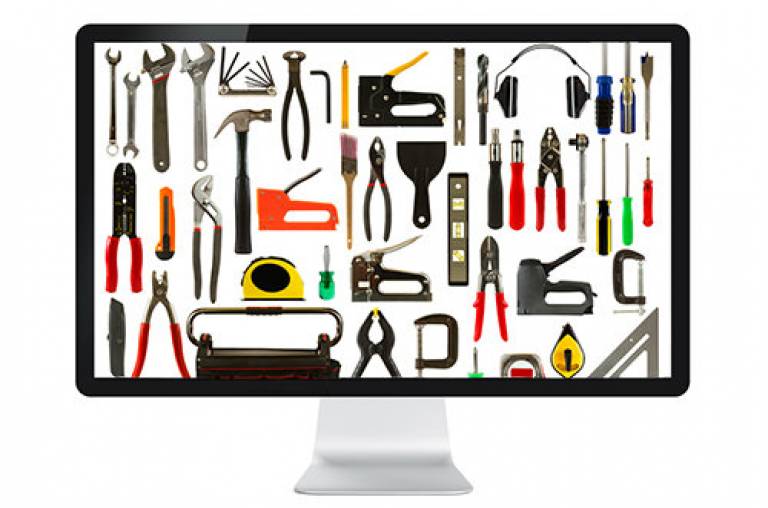Making and using video for teaching: Dr Graham Roberts' tips & advice
Dr Graham Roberts shares how he has benefitted from using video in his teaching within UCL Computer Science.

15 June 2015
This interview is part of the ‘Lecturers on Video’ research project for Digital Education and Digital Media. The project, conducted in 2015, investigated how and why lecturers use video and what their future video requirements are for successful student teaching. A questionnaire was developed and an education producer, Dr Mike Howarth was commissioned to produce the content for the UCL Lecturers on Video research project.
Dr Graham Roberts (Departmental Tutor/Director of Studies) teaches introductory and intermediate courses on programming and software engineering. He finds students increasingly prefer – and expect – access to online resources. In response to this, he creates his own videos “to capture core materials” and to build a library of reusable and accessible resources for his students (and himself).
Why and how I am using video
“It does take time to learn how to produce good video and good material. It's different from doing a stand-up live lecture. You have to select what you're going to include carefully and you need to plan the length.
You're not trying to give an entire lecture in that time so you often have to cut down or edit material in order to get down to the essential points or the central demonstration you give, in order to make it good material that is watchable. Short videos in the range of maybe 5 to 10 minutes, should be the most of what you're aiming for.
If you're just recording a lecture effectively than it's less interesting, boring and really no better than actually giving the lecture live. It’s a different medium and you need to exploit that.
Learning from my experiences
I’ve been using video now for three or four years. I really just started off as a complete novice by recording stuff and editing it to see what comes out. I've been on various courses which have been very valuable but in the end it's been the experience of producing videos over multiple years.
One of the experiences I’ve had is that the first time around you tend to do things which are quite elaborate and specific to the teaching that you're doing at that time, which tends to make material rather harder to reuse. I started off by effectively being in standard lecture mode, but in doing so it means what you're trying to do is capture lectures rather than using a new medium.
What will make the video presentation effective? Perhaps it is cutting down the material, changing the way you present or not speaking too much. Making sure you have good sound and think about sorts of issues like that.
I've learnt about this over time by making all the mistakes I possibly could and then going back and reviewing them.
Getting students to produce videos
I have been using video assessment for three of four years now. Students are asked to produce a video, as part of an assignment or part of project work, which demonstrates that work - explaining what it’s about and so on.
The first time I tried it, I was worried that students would have problems producing the video but that actually wasn’t a problem at all. With the sort of smart phones and laptop cameras available, it’s worked very well; they've got the equipment in their pockets.
Logistically, it works better to get students creating videos than trying to arrange a session where all the students come together in their groups and give live presentations. Another advantage is it gives the students time and opportunity to work on and refine the presentation.
It helps that they’re not trying to give a presentation in front of a live audience which some students find difficult. So it also does raise the threshold in quality, in that students can't get away with rushed presentation or poor quality because they have time to do it properly. That also forms part of the marking criteria.
How videos might fit in with the future of teaching
The use of video at UCL is all about transitioning to the future - we know that teaching is going to change the way we interact as we want to have much more research-based teaching. It’s keeping the core experience of being at university alive and thriving while still delivering high quality material to the students.
I think UCL needs to be at the forefront of the development of teaching and the use of video and online material is going to be a key part of that. We need to be defining how this works, what is best practice and then delivering it to our students."
 Close
Close

